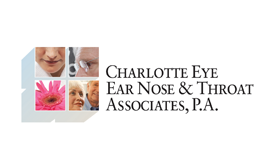When people face cold season they often try a variety of over-the-counter medicines to fight off their sickness or prevent themselves from getting sick at all. But sometimes those medicines – especially the zinc-based ones – can have side effects. Dr. Christopher L. Tebbit, an ear, nose, and throat doctor with Charlotte Eye Ear Nose & Throat Associates, P.A., joins us this month to talk about the pros and cons of zinc-based and other cold prevention medicines.
Do cold prevention medicines work? In other words, does taking one medicine, vitamin, etc. regularly keep you from getting sick, or do they just decrease the risk of getting sick?
Everyone gets infected with a cold virus at some point and there is no magic combination of medicines or vitamins/supplements that will prevent all infections. Some researchers have suspected that taking zinc supplements daily may be preventative but there is no conclusive evidence this is the case. Good hygiene/frequent hand-washing, eating a balanced diet, and staying in shape are the best prevention measures.
If you do get sick, can cold remedies (zinc-based or otherwise) reduce the amount of time you are actually sick?
There is no conclusive evidence that zinc-based cold remedies will shorten the duration of a cold. Some studies show zinc does help and others show no benefit. If there is a benefit from taking zinc to reduce the duration of a cold, that benefit is likely very marginal. Decongestants, Tylenol/ibuprofen/Mucinex, and other cold remedies do not shorten the duration of the cold, but they do provide symptomatic relief.
Why is zinc so important to your health? Why is it good at fighting off colds?
Zinc is a trace element that is essential for immune system functioning. We know that individuals who are zinc-deficient are more susceptible to infections. As mentioned above, there is no conclusive evidence that zinc has significant benefit in preventing or “fighting off” colds. In fact, too much zinc can have negative side effects.
There are some concerns that zinc-based nasal sprays dull your sense of smell. Why does zinc do that? Can zinc permanently deaden your sense of smell, and why?
One of the negative side effects of zinc use is the loss of smell. The medical term for this is anosmia. A small number of people who use zinc nasal sprays will suffer from anosmia. This is limited to intranasal zinc exposure and not to pill/tablet formulations of zinc.
Why is the sense of smell so important?
Sense of smell is very important for a number a reasons: 1) it alerts us to our environment, from knowing foods have spoiled to detecting gas leaks to knowing that coffee was just brewed. 2) Our ability to taste is significantly reduced if we cannot smell, making food taste bland or have no taste at all.
Are oral zinc-based supplements better than nasal sprays in terms of side effects?
In terms of risk of loss of smell, the oral based supplements are better, however there are potential side effects of oral zinc use too: oral ulcers, headaches, lethargy, metallic taste, and stomach irritation are all possible side effects of zinc use. Short-tem use is relatively safe, but long term over-supplementation can cause more serious health problems, including decreased immune function, anemia, and copper deficiency.
Are there any benefits in general to taking an oral cold remedy vs. a nasal spray, or vice-versa?
Both can be used in combination for symptom relief for colds. Decongestant nasal sprays are often most effective for nasal obstruction due to the swelling from a cold. Nasal steroid sprays, like Flonase, can decrease the congestion and secretions from a cold. Regarding oral remedies, Tylenol and ibuprofen are helpful for the headache/body aches that accompany a cold. Mucinex is a mucolytic, which can decrease the viscosity of thick nasal/chest secretions. Antihistamines can be effective in decreasing secretions and oral decongestants can also be effective. In general, it is best to treat the symptoms with the appropriate medication.
How much zinc is too much zinc overall?
From the Institute of Medicine’s Food and Nutrition Board: the maximum amount of zinc for healthy adult men and women is 40 milligrams daily. More than this amount will lead to potentially dangerous side effects. For children between 9 and 13 years of age, more than 23 milligrams of zinc is too much. Adolescents between 14 and 18 years should not consume more than 34 milligrams daily.
Are other nasal sprays (those that might not contain zinc) better for you in terms of side effects? Are any cold medicines in general better for you in terms of side effects?
Nasal decongestant sprays, such as Afrin, do not cause loss of smell, and are very safe with short term use. Using these medications daily for more than a week or two will lead to rebound nasal swelling, a condition termed rhinitis medicomentosa. Nasal steroid sprays, such as Flonase, are very safe as well, with nose bleeding and headaches as the most common side effects.
What are some natural ways people can prevent themselves from getting sick without needing to take cold medicines?
Good hygiene/frequent hand-washing, not smoking, eating a balanced diet, and staying in shape are the best prevention measures.
What are some good, natural ways to take in zinc that won’t cause the side effects the nasal sprays and cold remedies cause? For example, what should you add to your diet to make sure you get a healthy amount of zinc?
Zinc is present naturally in red meats, milk, cheeses, nuts, shellfish and beans. People who eat a balanced diet inclusive of appropriate amounts of these foods will get a healthy amount of zinc. A multivitamin contains a healthy amount of zinc as well.
 Dr. Tebbit is a comprehensive otolaryngologist who attended the University of North Carolina at Chapel Hill for his undergraduate degree and the Duke University Medical Center for his medical degree, his fellowship, and his residency. He practices in our Belmont office.
Dr. Tebbit is a comprehensive otolaryngologist who attended the University of North Carolina at Chapel Hill for his undergraduate degree and the Duke University Medical Center for his medical degree, his fellowship, and his residency. He practices in our Belmont office.
![]()
Charlotte Eye Ear Nose & Throat Associates



